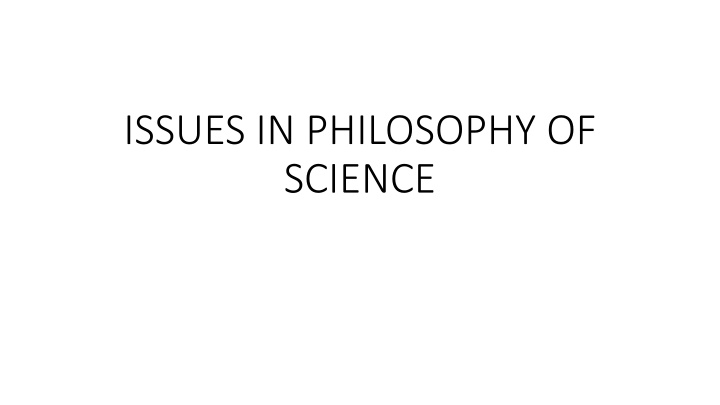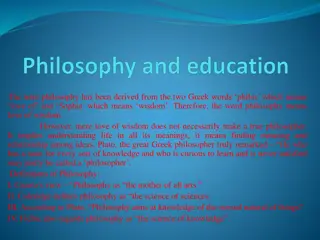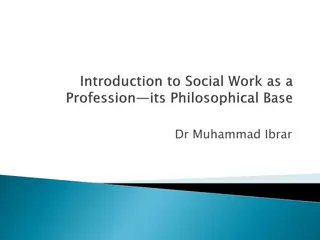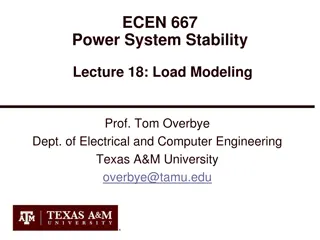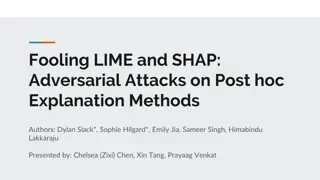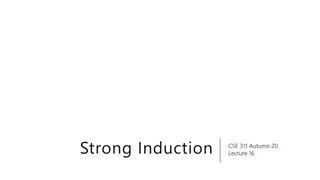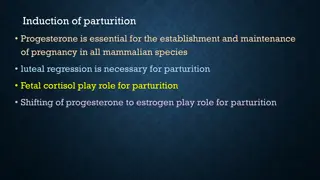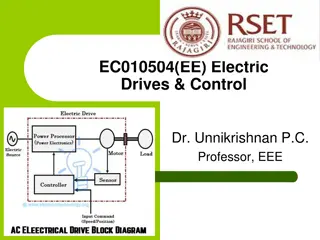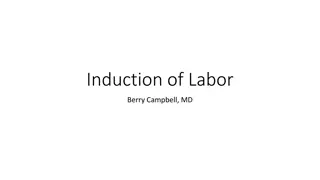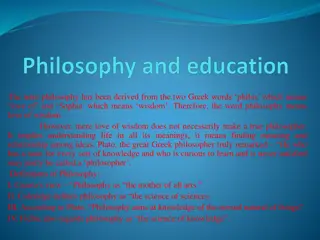Challenges in Philosophy of Science: Explanation and Induction
The field of philosophy of science grapples with various issues, including the Problem of Explanation and the Problem of Induction. Aristotle's views on scientific explanation and the deductive-nomological model are discussed. The reliance on induction in science, drawing general conclusions from limited instances, presents its own set of challenges.
Download Presentation

Please find below an Image/Link to download the presentation.
The content on the website is provided AS IS for your information and personal use only. It may not be sold, licensed, or shared on other websites without obtaining consent from the author.If you encounter any issues during the download, it is possible that the publisher has removed the file from their server.
You are allowed to download the files provided on this website for personal or commercial use, subject to the condition that they are used lawfully. All files are the property of their respective owners.
The content on the website is provided AS IS for your information and personal use only. It may not be sold, licensed, or shared on other websites without obtaining consent from the author.
E N D
Presentation Transcript
ISSUES IN PHILOSOPHY OF SCIENCE
There have been a number of philosophical problems with science. Some of these problems are metaphysical, while others are ethical and epistemological. The following problems may readily be identified. 1. The Problem of Explanation 2. The Problem with Induction 3. The Problem of Causation 4. The Problem of Perception
The Problem of Explanation There is the need for explanation regarding phenomena about how things happened, when and what happened? How? Why? What? When? Questions are asked in science. At the core of the Problem of Explanation is what counts as a good explanation?
Aristotles condition for a good scientific explanation Aristotle has attempted to identify what should count as a good explanation by identifying four causes that constitute a good explanation. 1. The Material cause: states the physical stuff that the thing is made of 2. The formal Cause: the metaphysical mould or form of a thing 3. Efficient Cause: that which brought a thing into existence 4. Teleological Cause: The Purpose an event is to serve
Aristotles position has some challenges and that is that it is plagued with so much metaphysical undertone that are hard to scientifically pursue. Another requirement that has been set for anything to be a good scientific explanation is that it must be a good logical analysis and thus must be structured in such a way that the explanandum (that which is to be explained) must not be found in the explanans (the set of words with which the explanation is done).
The deductive-nomological model is another attempt at explaining what is a good scientific explanation. The requirement is that a good scientific explanation is one which is deduced from an overarching scientific law and carries a law-like generalisation.
The Problem of Induction Science is heavily dependent on inductive reasoning or induction Induction has to do with deriving a general conclusion from particular premises. It is drawing a general conclusion from few instances. When scientists arrives at their findings, they do this by looking at a few instances to arrive at a conclusion, since it is impossible to study all available data. The problem with induction is that the conclusion does not necessarily follow from the premises. Thus, no matter how many times we observe that Event A causes Effect B, we are not absolutely justified to believe that Event A will always lead to Effect B.
The Problem of Causation Normally, in science, scientists try to understand the cause of things. There is the attempt to understand which event causes another event to happen. Over, a period of time, scientists associate one event with another if a pattern has been noticed. In Causation, there are three things to note 1. Temporal proximity or propinquity: The time Event A (the cause) and the Event B (the Effect) happen are close 2. Spatial Closeness or Spatial Proximity: Both Event A and Event B happen within the same vicinity. 3. Temporal Order: That the cause (Event A) happens before the Effect (Event B).
However, the problem with causation is that there is no absolute proof that the cause that we have associate with an effect will always produce the effect. For instance, there is not absolute certainty that an incubated egg will hatch into a chick.
The Problem of Perception Science is heavily dependent on the senses- sight, smell, touch, hearing, taste. The question, however, is how does one get objective knowledge from individual perceptions? According to Protagoras, Man is the measure of all things. Of things that are, that they are, and of things that are not that they are not. This is to suggest that objectivity is not possible. Thus, when there is observation, what is the assurance that different people have perceived an object the same way?
Another problem with perception is whether property observed at the physical level is all there is to the study and understanding of the object of study of science. The question is what if the physical and material universe is just a section of what constitutes reality?
